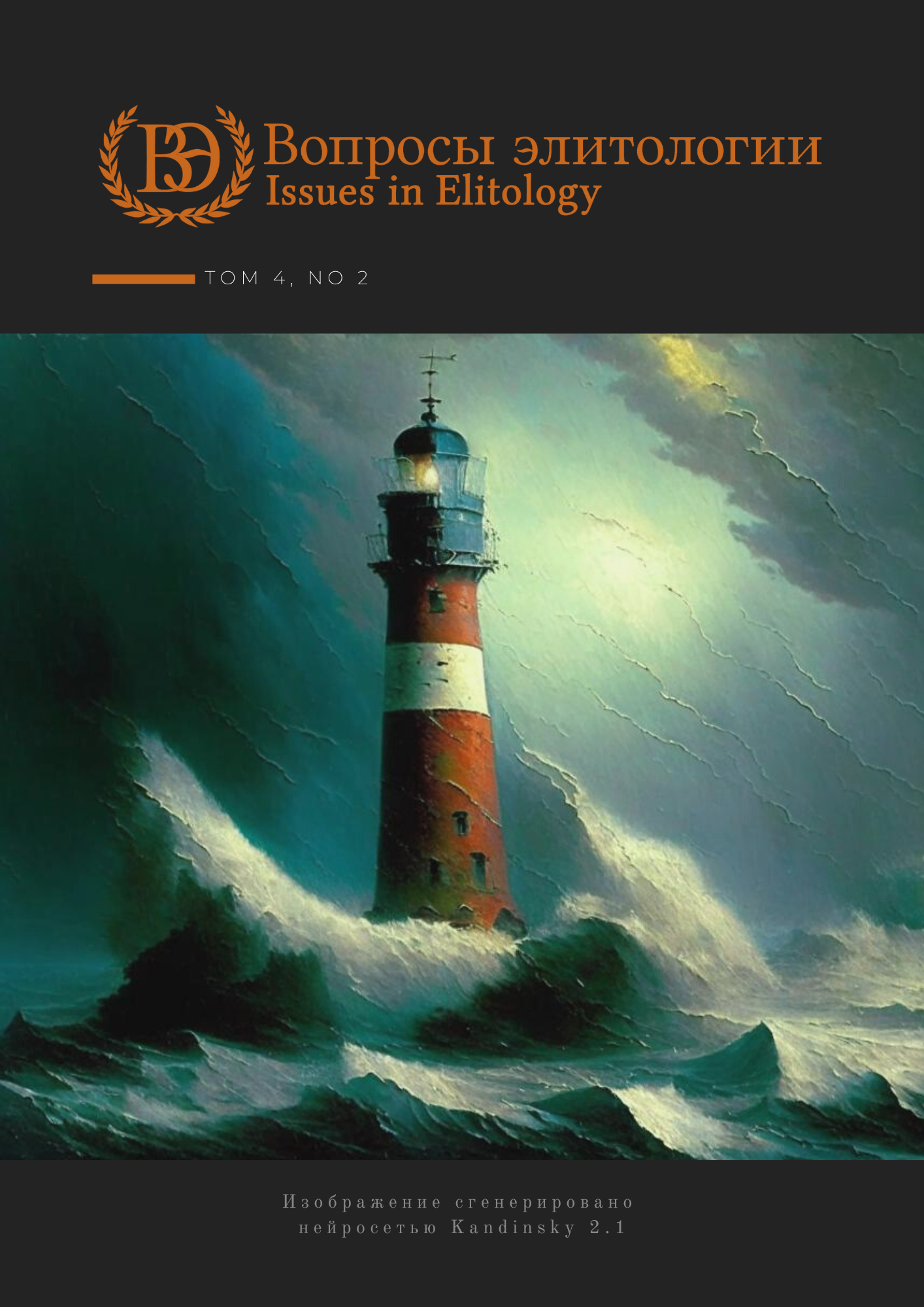Abstract
The paper is aimed at clarifying scientific ideas about the role of political and administrative elites in the policy of shaping the identity of urban agglomerations. Studying identity politics in urban agglomerations is in its early stages in the current science. The article reveals the influence of urban agglomeration governance models on the emergence of institutional prerequisites for the formation of agglomeration identity. The problems of political representation in the conditions of the development of agglomerations are characterized. It has been established that the two-level model of agglomeration governance creates the prerequisites for contradictions between the interests of the core and the periphery of agglomerations. Fundamental differences between the core and the periphery in terms of resource ownership make it difficult to ensure a balanced representation of political interests in the agglomeration governance system. Particular attention is paid to the cases of the Barcelona and Rotterdam (Rheinmond) agglomerations. The absence in Russia of a two-level model for managing agglomerations prevents the formation of administrative and political elites localized at the level of agglomerations. The absence of separate governing bodies for agglomerations can be characterized as a limiting factor both for the development of agglomerations and for the formation of the identity of agglomerations.
References
Ahrend, R., Gamper, C. & Schumann, A. (2014). The OECD Metropolitan Governance Survey: A Quantitative Description of Governance Structures in large Urban Agglomerations. OECD Regional Development Working Papers. doi: 10.1787/5jz43zldh08pen.
Andersson, M. (2010). Metropolitan Governance Models. Common Institutional Approaches of Potential Relevance for Dar es Salaam. Discussion Paper. http://www.citiesalliance.org/sites/citiesalliance.org/files/CAFiles/Projects/Discussion_Paper_Metropolitan_Governance_Model.pdf.
De Angelis, G. (2021). Elites and Urban Communities in Early Medieval Italy. Identities, Political Initiatives, and Ways of (Self-) Representation. Civic Identity and Civic Participation in Late Antiquity and the Early Middle Ages. Ed. by C. Brélaz and E. Rose, Brepols, 391-416.
Erdem, M. (2017). The Role of Elites in the Formation of National Identities: The Case of Montenegro. USF Tampa Graduate Theses and Dissertations, 2017. http://www.digitalcommons.usf.edu/etd/7020
Galinovskaya, E.A. & Kichigin, N.V. (2020). Urban agglomeration as a legal category: problem statement. Journal of Russian Law, 8, 141-156. doi: 10.12737/jrl.2020.100 (in Russian).
Gelman, V.Y. (2003). Political Elites and Strategies of Regional Identity. Journal of Sociology and Social Anthropology, 2, 91-105. (in Russian).
Grishin, N.V. (2019). The state as an actor of identity construction policy. Caspian region: politics, economics, culture, 3, 66-72. doi: 10.21672/1818-510X-2019-60-3-066-072 (in Russian).
Grishin, N.V. (2020). The State Identity Policy: A New Bet in the Political Struggle? Tomsk State University Journal of Philosophy, Sociology and Political Science, 55, 231-239. doi: 10.17223/1998863X/55/23 (in Russian).
Helbling, M., Reeskens, T. & Wright, M. (2016). The mobilisation of identities: A study on the relationship between elite rhetoric and public opinion on national identity in developed democracies. Nations and Nationalism, Vol. 22, No. 4, 744-767. doi:10.1111/nana.12235
Khiangte, L. (2022). Elites in the process of Ethnic Identity Formation and Assertion: A study of Mizo Identity. Mizoram University.
Kolyasnikov, V.A. (2015). Development of the concept of "urban agglomeration". Academic Bulletin UralNIIproekt RAASN, 2, 10-15. (in Russian).
Kulakov, S.V. (2015). The political elite of the Tambov region as a suggestor of regional identity. Modern political processes, 1 (14), 76-81. (in Russian).
Lane, D. (2011). Identity Formation and Political Elites in the Post-Socialist States. Europe-Asia Studies, Vol. 63, No. 6, 925-934.
Nientied, P. (2018). Hybrid urban identity—the case of Rotterdam. Current Urban Studies, 6, 152–173. doi: 10.4236/cus.2018.61008.
Pavlov, Yu.V., Koroleva, E.N. & Evdokimov, N.N. (2019). Theoretical foundations for the formation of the urban agglomeration management system. Economics of the Region, 3, 834-850. doi: 10.17059/2019-3-16 (in Russian).
Pavlov, Yu.V., Koroleva, E.N. & Labzin, A.V. (2018). Governing bodies of an urban agglomeration: designing the composition and methods of formation. Bulletin of St. Petersburg University. Management, 4, 576–610. doi: 10.21638/11701/spbu08.2018.405 (in Russian).
Petersson, B. (2001). National Self-Images and Regional Identities in Russia. Aldershot: Ashgate.
Popova, O.V. (2020). On the unresolved problems of the theory of state policy of identity in Russian political science. Political Science, 4, 86-110. doi: 10.31249/poln/2020.04.05 (in Russian).
Popova, O.V. & Grishin, N.V. (2023). Political identity of Russian youth in self- and experts’ assessments. Political Science, 2, 140–162. doi:10.31249/full/2023.02.06
Strebel, M.A. (2022). Who supports metropolitan integration? Citizens’ perceptions of city-regional governance in Western Europe. West European Politics, Vol. 45, No 5, 1081-1106. doi: 10.1080/01402382.2021.1929688.
Vallbé, J., Magre, J. & Tomàs, M. (2018). Being metropolitan: The effects of individual and contextual factors on shaping metropolitan identity. Journal of Urban Affairs, Vol. 40, No 1, 13-30. doi: 10.1111/juaf.12243
Yermak, S. (2014). Ufa agglomeration: the formation of meaning. URL: https://expert-ural.com/articles/ufimskaya-aglomeraciya-formirovanie-smisla.html (in Russian).

This work is licensed under a Creative Commons Attribution 4.0 International License.


